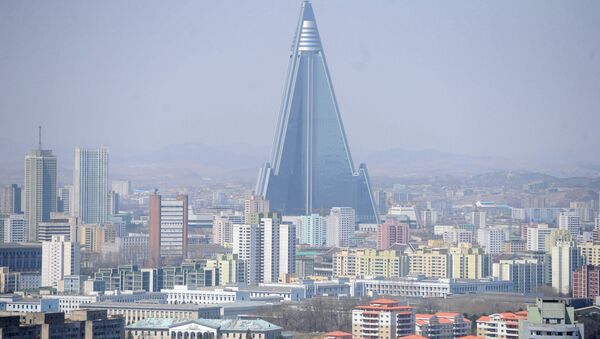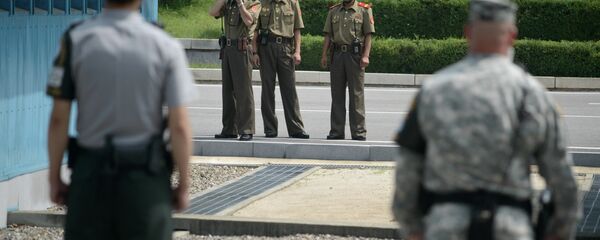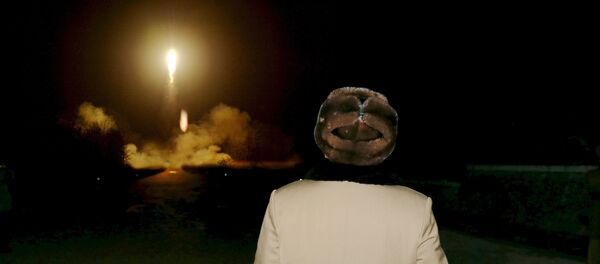“Kim Jong-un has strengthened his grip on power much faster than the world community expected, therefore any additional sanctions against North Korea will only serve to inflate anti-Seoul and anti-US sentiment there, rather than undermining his authority,” Lee Jung-Chul, a professor of political science at Soongsil University in Seoul, said in an interview with Sputnik Korea.
“This is what I call a ‘stability instability paradox’ where a country that has ensured strategic stability with the help of a nuclear deterrent results in the growth of military spending and increases the risk of local conflicts with the use of conventional arms with a less powerful neighboring state.
“If North Korea is assured of its nuclear status and the impossibility of a full-scale war with the South or the United States, then chances are that new local conflicts may flare up, like North Korea's shelling of South Korea’s Yeonpyeong Island in 2010,” Professor Lee noted.
He emphasized that Seoul should respond to the North Korean leader’s growing clout by “fundamentally” changing its policy towards its northern neighbor.
“Our policy towards the North hinges on two provisions: to ensure the South’s overwhelming military, economic and political superiority over Pyongyang, and our firm belief that international sanctions can force the North to ‘denuclearize’” Lee Jung-Chul continued.
“However, if we consider Pyongyang’s nuclear forces as a real threat then we will have to admit our inability to inflict a major defeat on the North despite our overwhelming advantage in conventional arms,” Professor Lee said, adding that a whole decade of international sanctions had failed to force Pyongyang to roll up its nuclear program.
The resolution also calls on member states to reduce the number of their staff at North Korean diplomatic missions and "limit the number of bank accounts to one per DPRK diplomatic mission."
The UN Security Council adopted the first resolution on North Korea in 1993. In 2016, the Council held 9 emergency consultations in response to Pyongyang’s nuclear test and ballistic missile launches. This year the country conducted two nuclear tests and at least 25 launches using ballistic missile technology.




